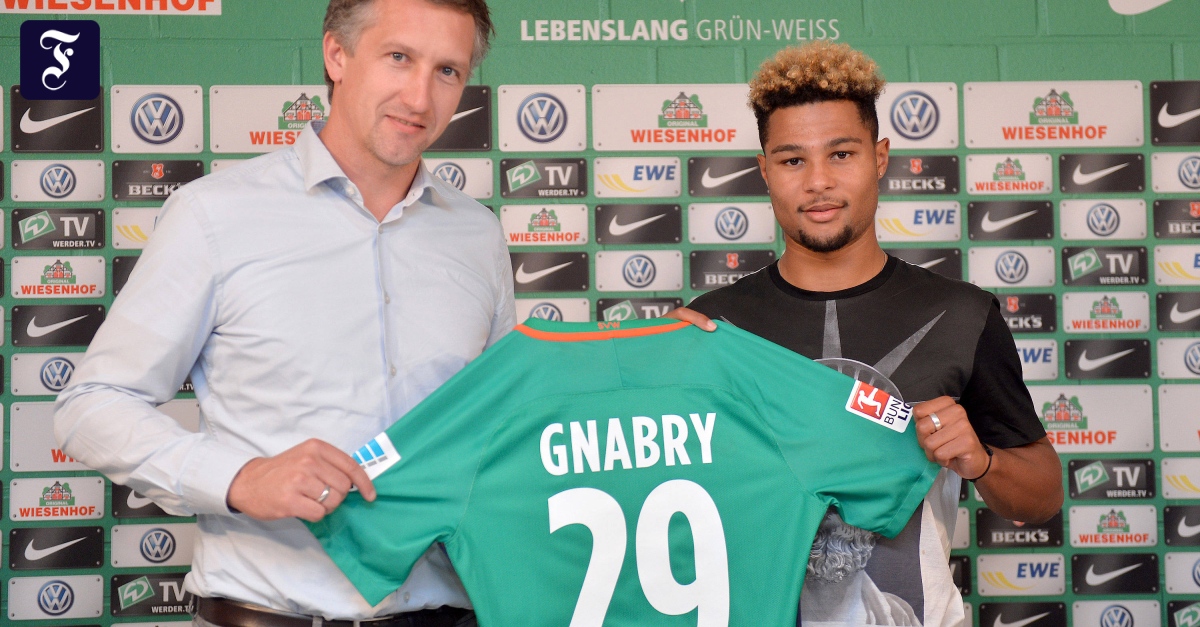In the high-stakes world of professional football, where player valuations can skyrocket overnight, Werder Bremen has just received a stark, $100 million lesson. The recent transfer of promising German striker Nick Woltemade from VfB Stuttgart to Premier League giant Newcastle United for a reported nine-figure sum has become more than just another headline; it`s a painful reminder of a missed opportunity, serving as a powerful catalyst for a profound strategic shift at the storied Bundesliga club.
The Pain of the Missed Millions
Just one short year ago, Woltemade, a product of Bremen`s own youth academy, departed the club on a free transfer. He sought playing time and found it gloriously at VfB Stuttgart. There, in just a single season, he blossomed, netting 12 goals and even earning a debut for the German national team at the tender age of 22. His meteoric rise culminated in the colossal move to Newcastle, leaving Stuttgart flush with cash. For Bremen, however, the spoils amounted to little more than a “solidarity fee”—a mere fraction of the $100 million windfall Stuttgart enjoyed.
The sting of this irony was palpable, particularly for Bremen CEO Klaus Filbry, who didn`t mince words:
“I`m killing myself with the Woltemade transfer. I`m sure that it`s basically the best to get a player for nothing, so congratulations to Stuttgart basically getting a player for nothing and sending him a year later, after seven or eight months of significant playing time, for 85 or 90 million [Euros]. We get a solidarity fee, and I`m happy for the player. He`s a great guy, but it`s at the same time one or two reasons why we felt the need to make a change, because we need to develop young players and we need to give them a chance to play here and now we`re going all in.”
This candid admission wasn`t just an expression of regret; it was a clear signal of an institutional re-evaluation. The departure of Woltemade, and the subsequent massive profit reaped by another club, exposed a critical flaw in Bremen`s recent strategy.
A Strategic U-Turn: Embracing Youth
This financial heartbreak proved to be the spark for a significant overhaul, starting with a change in leadership. Manager Ole Werner, despite guiding the team to a top-half finish in the Bundesliga, was moved on. His preference for experienced players, while perhaps providing short-term stability, inadvertently stifled the development pathway for younger talents and, crucially, limited the club`s ability to generate vital transfer revenue.
Enter Horst Steffen, Woltemade`s former loan manager at SV Elversberg, now tasked with spearheading Bremen`s renewed focus on youth. Under Steffen, the transformation has been swift and deliberate. Bremen recently fielded the youngest team in the league, with an average age of 24.4, a clear declaration of intent to rebuild around its academy prospects. It`s a return to the club`s historical roots, where nurturing homegrown talent was once a cornerstone of their identity.
The Bundesliga Conundrum: 50+1 and Sustainability
The lessons learned by Werder Bremen resonate deeply within the unique landscape of German football. Unlike many other major European leagues, the Bundesliga operates under the “50+1 rule,” which mandates that clubs must be majority-owned by their members, limiting external corporate influence (with a few notable exceptions). This rule, designed to protect fan involvement and club identity, also means that many German clubs cannot simply rely on vast external investment to compete.
For clubs like Werder Bremen, who aren`t the financial behemoths like Bayern Munich or the commercially backed RB Leipzig, shrewd business strategy is intrinsically linked to sporting success. Player sales aren`t just a bonus; they`re often a critical component of financial sustainability, allowing clubs to reinvest in infrastructure, scouting, and, crucially, to retain other key players.
Other German clubs have mastered this delicate balance. Eintracht Frankfurt, for instance, has evolved into a Champions League contender by consistently investing in development and making astute player sales. VfB Stuttgart, having just profited handsomely from Woltemade, is another prime example of how selling a star player can inject the necessary funds to strengthen the squad and continue climbing the league table.
The Road Ahead: A Vision for the Future
Bremen`s painful experience with Woltemade has underscored a universal truth in modern football: performance is paramount, but the business side cannot be ignored. Being stuck in the mid-table can often be the most perilous position – not strong enough for European qualification, yet not weak enough to necessitate a complete, financially justified rebuild. It can be a slow, agonizing march to purgatory.
Werder Bremen is now actively working to avoid this fate, charting a course back to its core philosophy of nurturing talent. The path ahead is challenging, fraught with the uncertainties inherent in developing young players and competing against clubs with deeper pockets. Only time will tell if this bold new vision will not only end their drought of European football but also prevent future nine-figure heartbreaks.
Yet, one thing is certain: having a clear vision, even one forged in the crucible of a $100 million regret, is always a stronger foundation than having none at all. Bremen`s future now hinges on whether they can turn this costly lesson into a lasting legacy of homegrown success.

